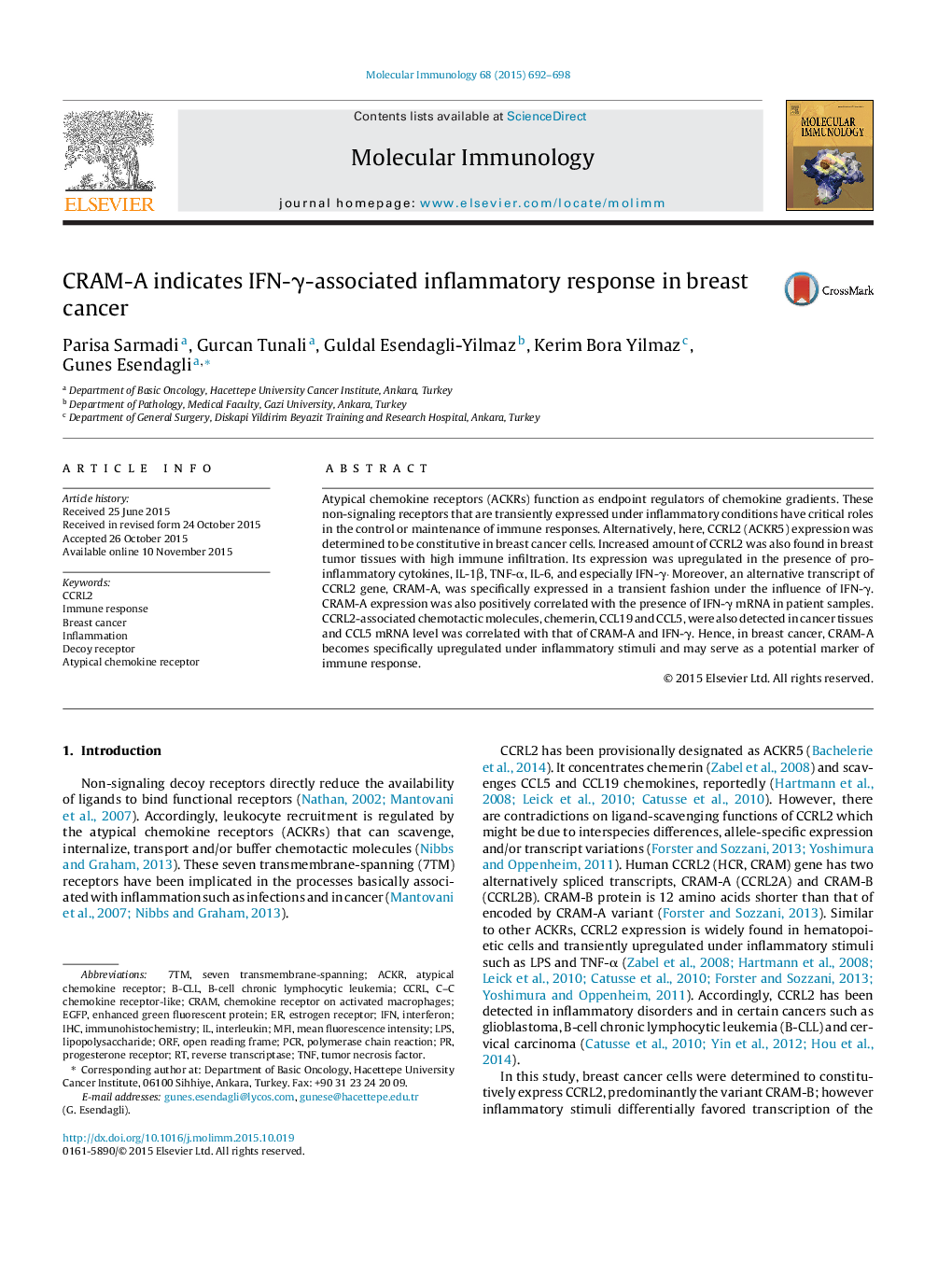| Article ID | Journal | Published Year | Pages | File Type |
|---|---|---|---|---|
| 2830687 | Molecular Immunology | 2015 | 7 Pages |
Abstract
Atypical chemokine receptors (ACKRs) function as endpoint regulators of chemokine gradients. These non-signaling receptors that are transiently expressed under inflammatory conditions have critical roles in the control or maintenance of immune responses. Alternatively, here, CCRL2 (ACKR5) expression was determined to be constitutive in breast cancer cells. Increased amount of CCRL2 was also found in breast tumor tissues with high immune infiltration. Its expression was upregulated in the presence of pro-inflammatory cytokines, IL-1β, TNF-α, IL-6, and especially IFN-γâ
Moreover, an alternative transcript of CCRL2 gene, CRAM-A, was specifically expressed in a transient fashion under the influence of IFN-γ. CRAM-A expression was also positively correlated with the presence of IFN-γ mRNA in patient samples. CCRL2-associated chemotactic molecules, chemerin, CCL19 and CCL5, were also detected in cancer tissues and CCL5 mRNA level was correlated with that of CRAM-A and IFN-γ. Hence, in breast cancer, CRAM-A becomes specifically upregulated under inflammatory stimuli and may serve as a potential marker of immune response.
Keywords
CRAMACKRTNFB-CLLeGFPLPSCCRL27TMORFMFIinflammationImmunohistochemistryIHCinterferonIFNinterleukinReverse transcriptaseBreast cancertumor necrosis factoropen reading frameB-cell chronic lymphocytic leukemialipopolysaccharidemean fluorescence intensitypolymerase chain reactionPCRImmune responseenhanced green fluorescent proteinEstrogen receptoratypical chemokine receptorDecoy receptorProgesterone receptor
Related Topics
Life Sciences
Biochemistry, Genetics and Molecular Biology
Molecular Biology
Authors
Parisa Sarmadi, Gurcan Tunali, Guldal Esendagli-Yilmaz, Kerim Bora Yilmaz, Gunes Esendagli,
